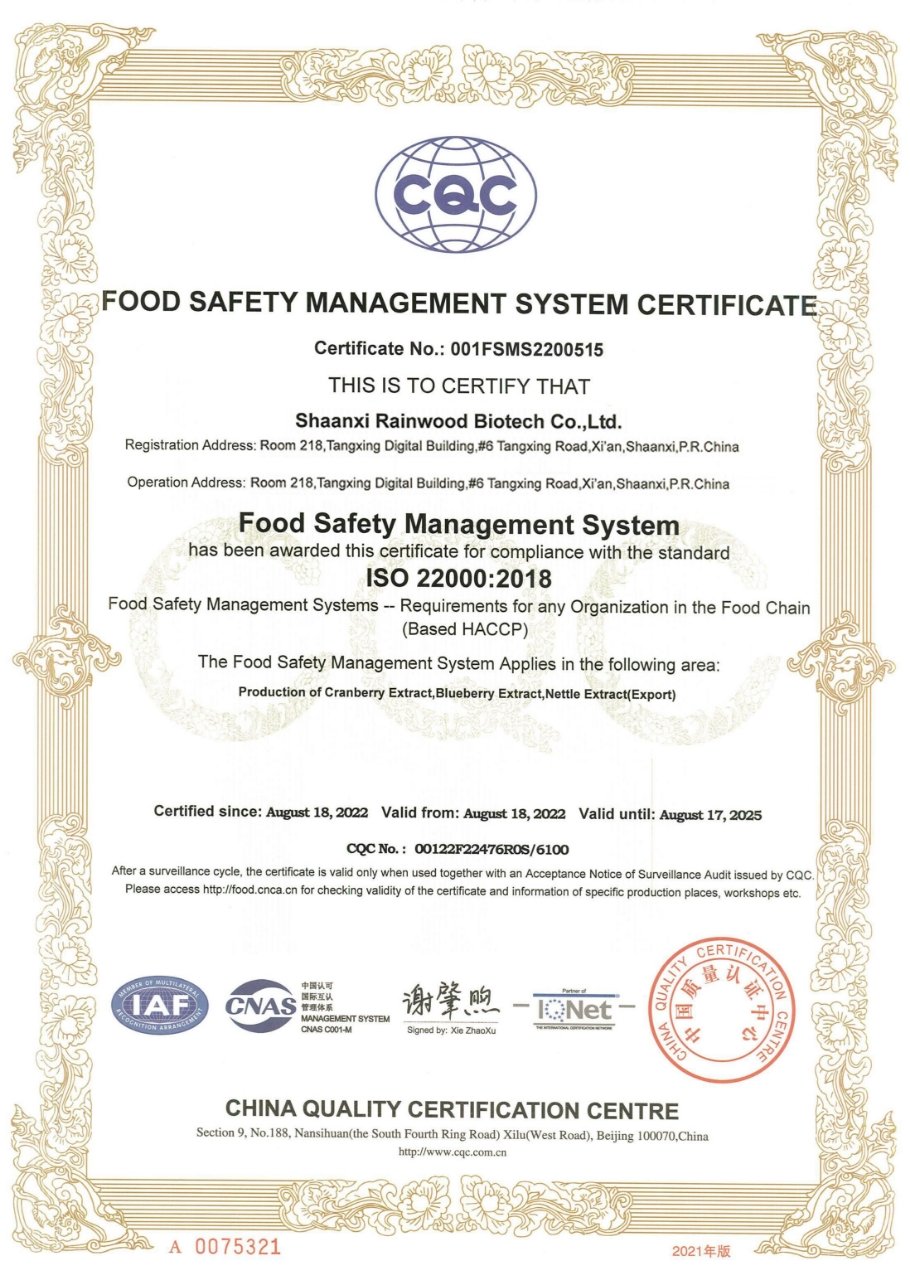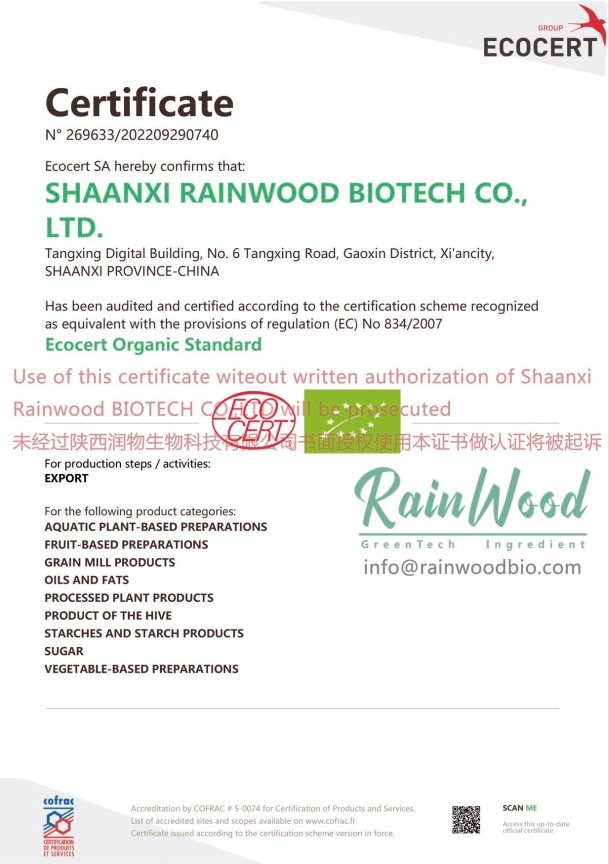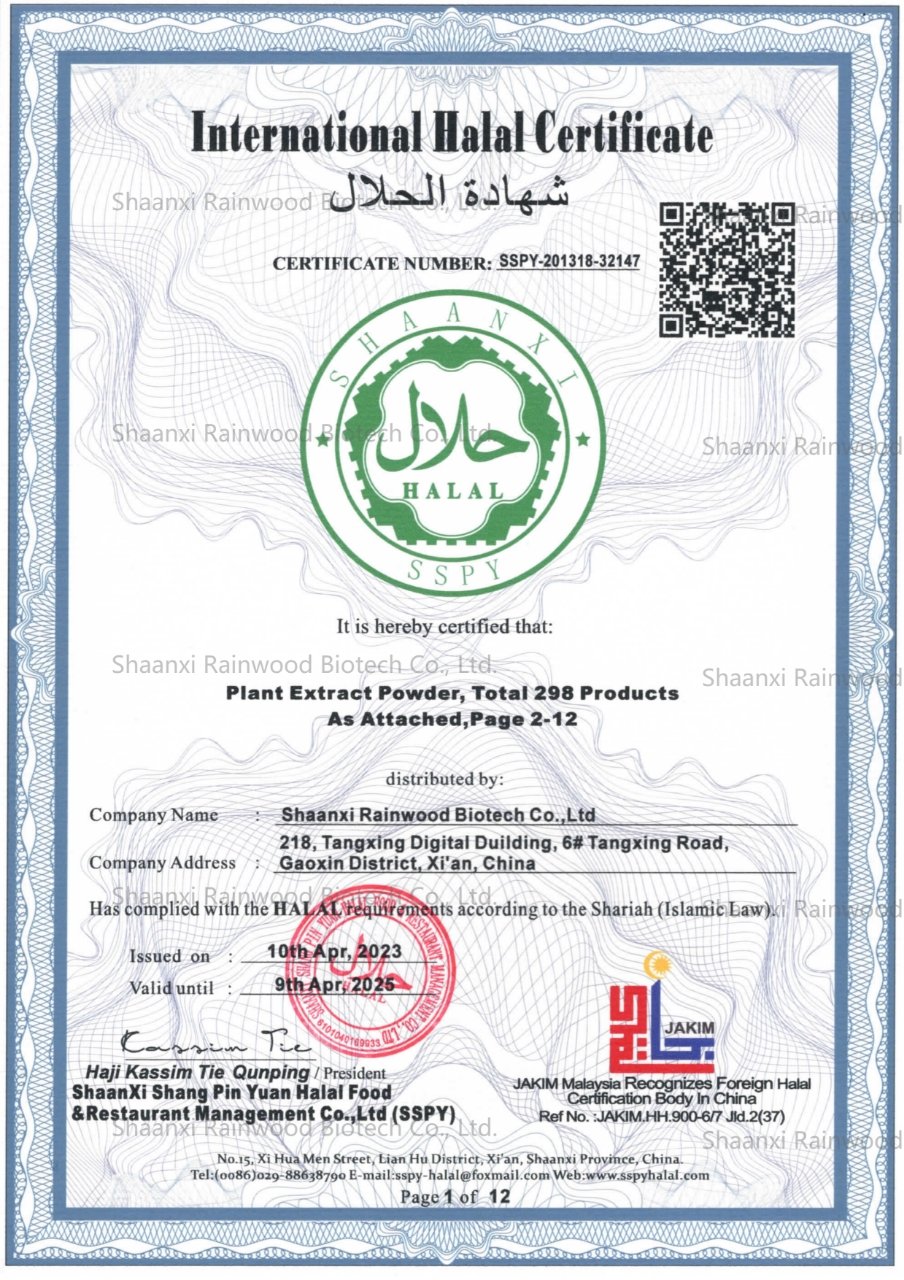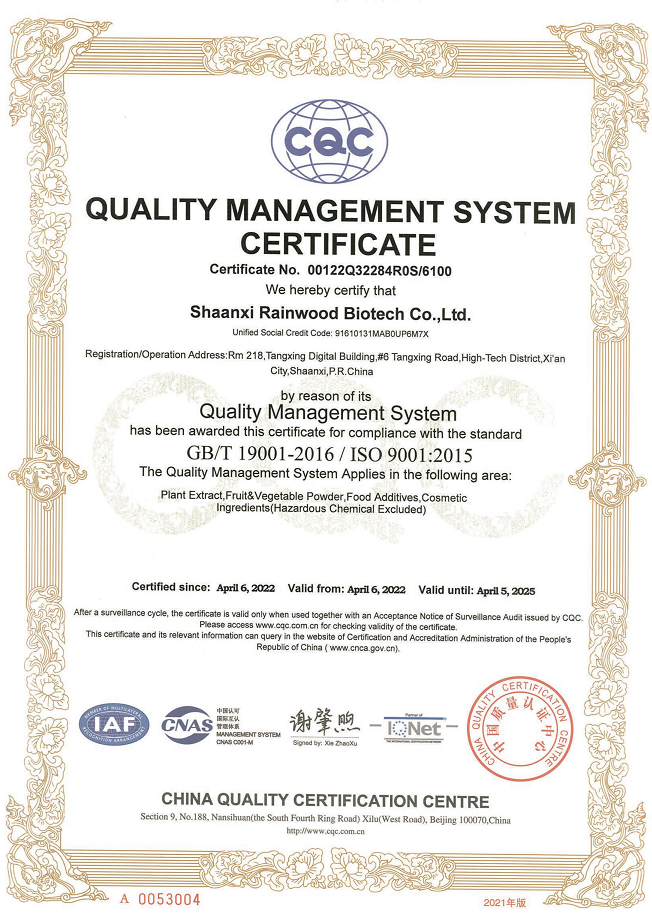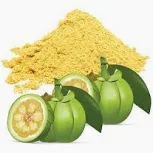Why are Plant Extract Supplements Popular?
Plant extract supplements are popular for several reasons:
Natural source: Plant extract supplements are typically made from natural compounds extracted from plants, which aligns with the preferences of many individuals who seek natural and healthy products. Compared to synthetic chemical ingredients, plant extracts are considered closer to nature, and consumers tend to prefer supplements sourced from plants.
Traditional herbal remedies: Many plant extracts have been widely used in traditional medicine and folk remedies, and they are believed to have medicinal value. These plant extracts have earned traditional recognition and trust, which attracts the interest of many consumers.
Comprehensive nutritional value: Plant extract supplements are often rich in various nutrients such as vitamins, minerals, antioxidants, and other beneficial compounds. These components can provide comprehensive nutritional support to help maintain normal bodily functions and overall health.
Personalized choices: The market for plant extract supplements offers a wide range of choices to meet the needs and preferences of different consumers. Individuals can select plant extract supplements that suit their health goals and personal preferences, which increases their popularity due to the ability to personalize their choices.
Potential health benefits: Many plant extracts are believed to offer various potential health benefits, such as antioxidant, anti-inflammatory, immune support, and cardiovascular health. These potential benefits attract consumers who are interested in improving their health through plant extract supplements.

What are consumer attitudes toward herbal extract supplements?
American consumers have a positive attitude toward herbal extract supplements. Herbal extract supplements are highly popular in the United States, and consumers generally consider them a natural and healthy supplementation option. Here are some key points regarding the attitudes of American consumers toward herbal extract supplements:
Global Supplement Market, Select Countries and Regions
| Country | 2023 est. sales ($ mil) | 2026 est. sales ($ mil) |
| United States | 62.7 | 70.3 |
| China | 26.1 | 31.0 |
| Western Europe | 21.5 | 24.0 |
| Latin America | 17.9 | 24.0 |
| India | 13.5 | 17.0 |
Natural health: American consumers tend to favor natural health supplementation options, and herbal extracts are perceived as a natural choice since they are derived from plants and often do not contain artificially synthesized ingredients.
Traditional herbal remedies: Herbal extracts have a long history in traditional medicine and folk remedies. Some herbal extracts are believed to have the potential to address specific health issues, which piques the interest of consumers.
Health maintenance and prevention: Many consumers view herbal extract supplements as part of maintaining good health and preventing diseases. They believe that herbal extracts can provide nutritional supplementation and support the functioning of specific bodily systems.
Personalized choices: The market for herbal extract supplements offers a wide range of choices to meet the needs of different consumers. Individuals can select herbal extract supplements that align with their health goals and personal preferences.
Trust and transparency: Consumers place great importance on the quality and safety of herbal extract supplements. They tend to choose reputable, certified brands and pay attention to the ingredients, production processes, and results of third-party testing.
If you are interested in establishing your own supplement brand, please contact Rainwood for popular supplement ingredients in the coming years. Rainwood is a trusted supplier of plant extract raw materials, and we have maintained excellent partnerships with over 50 supplement brands worldwide for over a decade. Rainwood produces supplements that can be used in tablets, liquids, capsules, gummies, skincare products, cosmetics, oral care solutions, foods, beverages, and various industries’ manufacturing processes.
Women’s Health and the Market for Nutraceutical Supplements
The market for women’s health and dietary supplements is a continuously growing market with significant potential. These supplements offer support and improvement for women’s specific health needs and physiological cycles.
Specific needs of women: Women have unique needs at different physiological stages and specific health issues. Areas of focus for women include menstrual cycle management, relief from menstrual pain, menopause support, bone health, skin care, cardiovascular health, and more. The market for women’s health and dietary supplements provides products tailored to these needs.
Comprehensive nutritional support: Women require specific nutrients to maintain health and balance. Women’s health and dietary supplements often contain vitamins, minerals, antioxidants, dietary fiber, and other ingredients to meet the special needs of women’s bodies.
Plant extracts and herbal supplements: Plant extracts and herbal supplements are highly popular in the market for women’s health and dietary supplements. For example, plant ingredients such as blackcurrant seed oil, red clover extract, soy isoflavones, and others are believed to be beneficial for women’s health.
Health management and prevention: Women are increasingly focused on health management and prevention, not just treating illnesses. Women’s health and dietary supplements offer a convenient way to promote overall health, boost immunity, support cardiovascular health, and reduce potential health risks.
Personalized choices and self-care: The market for women’s health and dietary supplements provides a wide range of choices to meet the needs and preferences of different women. Personalized products and brand positioning can help women select supplements that are suitable for them, promoting self-care and enhancing health awareness.

Men’s Health and the Market for Nutraceutical Supplements
The market for men’s health and dietary supplements is a rapidly growing market with vast potential. These supplements provide support and improvement for men’s specific health needs and physiological characteristics.
Specific needs of men: Men have unique needs at different physiological stages and specific health issues. Areas of focus for men include sexual health, prostate health, muscle strength and recovery, cardiovascular health, bone health, and more. The market for men’s health and dietary supplements offers products tailored to these needs.
Comprehensive nutritional support: Men require specific nutrients to maintain health and balance. Men’s health and dietary supplements often contain vitamins, minerals, amino acids, antioxidants, and other ingredients to meet the special needs of men’s bodies.
Muscle growth and athletic performance: The popularity of men’s fitness and sports activities has made muscle growth and athletic performance an important area in the market for men’s health and dietary supplements. Ingredients such as protein supplements, creatine, branched-chain amino acids, and others are widely used to enhance muscle growth, recovery, and athletic performance.
Cardiovascular health: Men face specific risks in terms of cardiovascular health. The market for men’s health and dietary supplements provides a range of products, including fish oil, coenzyme Q10, lutein, and more, to support heart and vascular function.
Prostate health: Prostate issues are a significant concern in men’s health. Some supplements such as saw palmetto extract, vitamin E, and others are believed to be beneficial for prostate health.
Supplement Solutions for Total Wellness
As consumer interest in overall health continues to grow, brands focused on new positioning and formula innovation will be ready to meet these demands. Comprehensive health supplement solutions are typically based on holistic nutritional supplementation to address various bodily needs. Here are strategies that brands may adopt to meet consumer demands for overall health:
Personalized customization: Brands can offer personalized health solutions by customizing different products and formulas based on consumers’ specific needs and goals. This can be achieved through health assessments, genetic testing, or collaboration with healthcare professionals.
Natural and organic products: People’s preference for natural and organic products is constantly increasing. Brands can focus on providing ingredients from natural sources, avoiding additives and artificial ingredients, and obtaining certifications to demonstrate the organic nature of their products.
Transparency and traceability: Consumers have higher concerns about the origin, production processes, and quality of products. Brands can provide transparent information to consumers, showcasing the raw material sources, production processes, and relevant certifications. This can build trust and meet consumers’ demands for product quality and traceability.
Comprehensive nutritional solutions: Brands can introduce comprehensive nutritional solutions that offer combinations of various nutrients to address overall health needs. These solutions can include combinations of multiple vitamins and minerals, herbal extracts, antioxidants, and other ingredients to support overall health and immune system function.
Research and scientific support: Brands can rely on research and scientific support to demonstrate the efficacy and safety of their products. By collaborating with the scientific community, conducting clinical studies, and publishing research findings, brands can enhance consumer trust and reliability of their products.
Sustainability and environmental consciousness: Consumers are increasingly concerned about brand sustainability and environmental initiatives. Brands can commit to reducing packaging waste, using sustainable raw materials, supporting environmental projects, and more to meet consumer demands for sustainability.
References
1. Nutrition Business Journal, Global Supplement Business Report, 2023.
2. Innova Market Insights, Category Insider: Global Trends in Supplements, May 2023.
3. Innova Market Insights, Holistic Wellbeing, December 2022.
4. Innova Market Insights, Mood Health, February 2023.
5. Innova Market Insights, Category Insider: Global Trends in Supplements, May 2023.
6. Euromonitor, International Health and Nutrition Survey, 2022.








